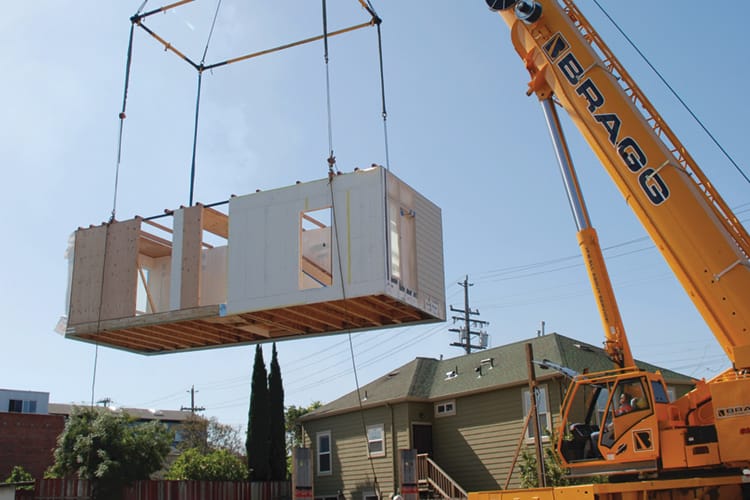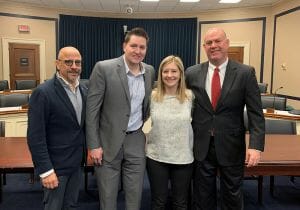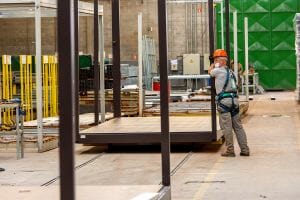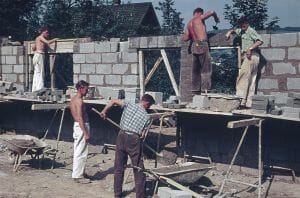FEMA Announces Hawaii Housing Plan Using Modular Construction
The plan marks is a major change for FEMA as it begins to incorporate modular housing into its disaster-relief options.
On March 28, 2024, the Federal Emergency Management Agency (FEMA) will release its housing assistance plan for residents impacted by the Maui wildfires in August 2023. These houses, which will be created outside of Hawaii using modular construction, will be built to the 2018 International Building Code as per the Hawaii state building codes and will be approved using ICC/MBI standards 1200 and 1205.
The initial Request for Proposal (RFP) will be to build 2,000 new homes in the areas most affected by the wildfires.
The utilization of modular homes in Hawaii marks a substantial shift for FEMA, signifying an understanding that modular houses can serve an immediate purpose and then be relocated for a different, permanent use when needed. FEMA began studying the potential for modular buildings in post disaster situations with an MIT study in 2019. The Modular Building Institute (MBI) participated in that study along with officials from the state of Virginia’s modular program.
The Hawaiian island of Maui was devastated by wildfires in August, 2023.

FEMA is planning 2,000 modular homes to help those displaced by the Maui wildfire.
Since then, MBI Government Affairs Director, Jon Hannah-Spacagna, has continued to work with FEMA leadership to promote the industry. On January 29-30, Jon was invited to attend a FEMA workshop in Washington, DC. There he connected with FEMA Deputy Director, Shunte’ Gray, to discuss their work for Hawaii relief. Jon provided copies of ICC/MBI standards 1200 and 1205 as well as a prototype structure an MBI member built for the 2019 MIT/FEMA study. Shunte’ confirmed that this information helped her team write the guidelines for their RFPs that will be available to modular manufacturers on March 30, 2024.
“This is a significant opportunity for our industry to partner with FEMA to support their relief efforts for those impacted by the wildfires in Hawaii,” said Hannah-Spacagna. “I’m also working with the director of Home Aid Hawaii, who is planning another housing project for victims that will consist of a $120 million commitment by the state to build an additional 456 homes using modular construction.”
Governor Josh Green of Hawaii confirmed in a recent interview that homes built off-site or even off-island would be part of the mix to rebuild Lahaina. Additionally, Andrew Pereira, Director of Public Affairs for the Pacific Resource Partnership stated, “I think it’s safe and fair to say that because of the crisis in Maui everyone wants whatever solution is available to, as quickly as possible, build housing that is going to provide dignity to people who live in it. I think this is probably the beginning of an era where we spend some of our energy on modular housing.”
Additional Government Affairs Articles
MBI Delegation Briefs Congressional Staff on the Negative Impacts of the Davis-Bacon Act Expansion
On a recent call with the White House’s Office of Information and Regulatory Affairs (OIRA), several MBI members provided testimony about the potential impact expanding the Davis-Bacon Act would have on their company and the industry.
Read Complete ArticleMBI Members Provide Testimony to White House Regarding Concerns of Davis-Bacon Act Expansion
On a recent call with the White House’s Office of Information and Regulatory Affairs (OIRA), several MBI members provided testimony about the potential impact expanding the Davis-Bacon Act would have on their company and the industry.
Read Complete ArticleMBI Secures NY Governor Veto On Bill Targeting Modular Industry
A large fleet owner member of MBI was recently delayed in Georgia due to the state’s confusion over the details of the International Building Code. According to the company’s regional general manager, “The feedback we got was, ‘Your plans are not up to date, you need to bring them up to code.’”
Here’s how MBI was able to correct the state’s misunderstanding.
Read Complete ArticleWhat is the Davis-Bacon Act and How Does it Affect Modular Construction?
Adopted in 1941, the Davis-Bacon Act was written long before the modular construction industry gained momentum. Now, the US Dept. of Labor is considering applying the law in ways that will seriously curtail the use of modular construction for federal and state projects.
Read Complete Article



